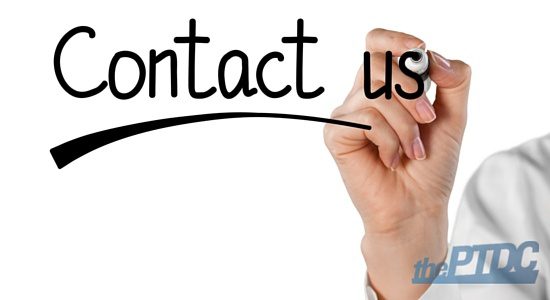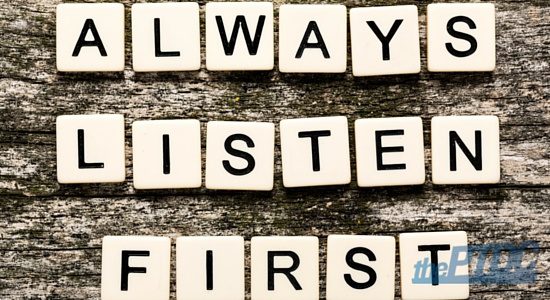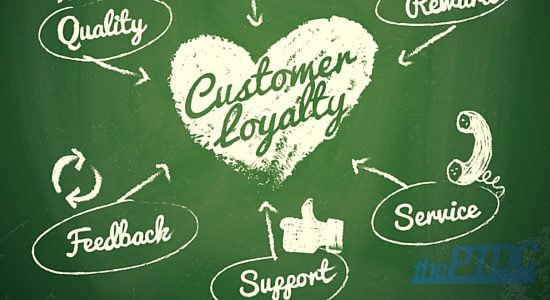Ask yourself right now: "What do my clients value?"
Your value as a personal trainer is obviously important to your short- and long-term business growth, but take note that your client's valuation of your business starts on their first interaction, before they actually speak to you. These things must always be considered in your analysis of ways to improve the value of your business and coaching.
The most direct way to increase your value in general is actually simple and straightforward: build on top of and improve your pre-existing value.
In essence, you should be "intensifying" what you are already doing in your business, not adding new services or features. Simply do what you are already doing, but do it better. Remember, training is an outcome-based business. You are hired on the basis of future results, but these are outcomes that are built upon moment to moment. Therefore, you should increase the value of those moments.
What makes your training valuable?
As a whole though, training with your client is an experience. We can call our training a product or even a service, but semantics aside, it constitutes an experience between a professional and a client.
When placing a certain value on this experience, it's common to apply only our own perspective to it: We want to be "evidence-based"; we want to get our clients "results"; we want our training to work--some way, somehow. So, we might pursue more certifications, get more education, read more blogs, and attend seminars and conferences.
Unfortunately, the reality is that whether you have two certifications or 20, certifications do not increase your value. But before we get to what does, let's establish these two principles:
- All people desire to feel important. If people feel unimportant, they do not feel valued.
- Perception is reality.

Those two principles must be applied to all aspects of your business as a personal trainer: Do you make people important? And how do they perceive you and what you do?
With those principles and questions in place as a guide, let us examine the objective ways with which we can improve our value.
1. Don't unknowingly blow people off.
You obviously wouldn't feel valued if someone ignored you either, yet poor practices that make people feel this way occur all the time in the industry.
At our gym, Relentless Performance, we have one core value that we follow:
"Be a gift to people."
We want whoever engages with us to feel important and valued. This is something we take seriously because we prioritize anyone and everyone that contacts us. To show that we really mean it, we do the following:
- If someone is referred to us, we call that person. If there's no answer, we leave messages. We also email them. We get to all responses within 24 hours.
- Anyone that contacts us through our website will receive a response within a day. That said, we prefer to call and talk on the phone, rather than email. But we'll do both. We also correspond with people on Facebook, if that's what they prefer.
- If you come into our gym at any given time, you will find that our gym is always clean. That's because we clean it four times each day--vacuuming, mopping, disinfecting, and wiping down all equipment.
What's the point of me saying all of the above? These interactions all happen before anyone ever actually meets with us face to face. They may seem like small things, but the feedback we continuously get from our members--both old and new--indicate to us that this is not the norm.
When I worked in corporate fitness, people commonly complained about how unhelpful employees were, how calling corporate was a headache, how there was no one to email, how gyms were dirty or poorly maintained, and so on and so forth.

Based on these, there are plenty of opportunities for you to build value. To name a few:
- Do not make yourself unnecessarily hard to get ahold of. Create clear channels of communication where you can be reached.
- Have a working phone number for your business that you actually answer. Set up a voicemail box that works and lets people know they've called the right establishment by explicitly stating your establishment's name in the voicemail.
- Respond to all electronic correspondence within 24 hours. Use an autoresponder in emails, especially for weekends and busy times when you cannot respond within a timely manner. Services like MailChimp offer ways for you to script automatic follow-up emails, where you can say that this is an automatic message that has received the customer's query, and you will be getting back to him or her within 24 hours (or some other reasonable timeframe).
- If you have a website, update your website with current contact information.
- Follow up with people. Don't let communication die out of laziness.
- Clean your gym. This demonstrates that you care about your facility. By extension, you care about the comfort of your members. You'd be surprised but simply doing this can increase perceived value immensely.
These suggestions are all basics in excellent customer service, but by emphasizing excellence, you really show that you value your clients--and by extension, your own services.
2. You are far greater than the sum of the workouts.
Let me start by asking you a question. Which do you think would make you feel someone is invested in you: if someone asked a technical question or a personal one?
Obviously, it's not going to be asking how motivated they are on a 1-10 scale, and then taking them through a numerically scored assessment.
People seek out training for professional guidance, but their goals are always personal ones. While training is a professional relationship, the investment and their sentiment towards you are ultimately personal.

That relationship is your value.
Don't only ask clients about their "goals". Goals mean nothing in and of themselves. Ask them about why they are here. Having had thousands of conversations with clients about themselves, I found the best way is to simply say:
"Tell me about yourself."
And follow that up with "So tell me more."
In the beginning of the relationship, this is an open-ended question that can go in multiple directions. The goal of this is to develop a framework of relevancy. From that question we can ask:
"What specifically brought you here today?"
"What are you hoping I can do for you?"
And lastly, "why is the (above) so important to you?"
Rather than ask yes/no inquiries, we now have a big-picture perspective about the individual, and we've personalized the interaction to a conversation, rather than just a line of questioning.
3. Be high energy.
I always believe that your energy must always be higher than that of the client.
Managing your daily energy and being "high" energy all the time are paramount to training success. The reason is that if you are perceived as "tired", your value falls.
Training is physical, and it demands focus from people who may not otherwise have it in their daily life. Personal training may very well be the only time in the week that they can focus solely on themselves.

In other words, the more engaged and lively you are, the better.
When someone is excited to see you, it's a very gratifying and energizing feeling. When someone is obviously tired but he sees you having low energy as well, the person wouldn't value you as much.
Recognize that the concept of being "high energy" is always going to boost your value for your training and business as a whole.
4. Ask for feedback. Constantly.
When was the last time you asked your clients or members for honest feedback on how they think your services and facilities could improve?
Likely never.
Whenever I ask trainers and gym owners this, the majority of them are always aghast by the idea.
This goes back to our two earlier principles of importance and perception: your clients' feedback on what is important is probably--well, important. And what they think is important is probably what can increase your perceived value.
Rather than hire a business coach or invest in courses that may or may not enhance your business, ask the people who are already there for ideas about improvement.
You'll be surprised by the level of insight they might have on what you could do better. Just don't be afraid to ask.

The bottom-line is that intensification, not addition, is the theme here. By improving your interaction, making your communication and those first impressions more effective, and personalizing the time you already spend with your clients, you can improve your worth simply by concentrating more on how that time is spent.
More articles to help you improve your business:
- Selling Personal Training in 5 Steps By Jonathan Goodman
- How to Raise Your Personal Training Prices By Ryan Ferguson
- 6 Mistakes That Held Me Back and I Now Make $150,000 a Year By Brandon LaVack









